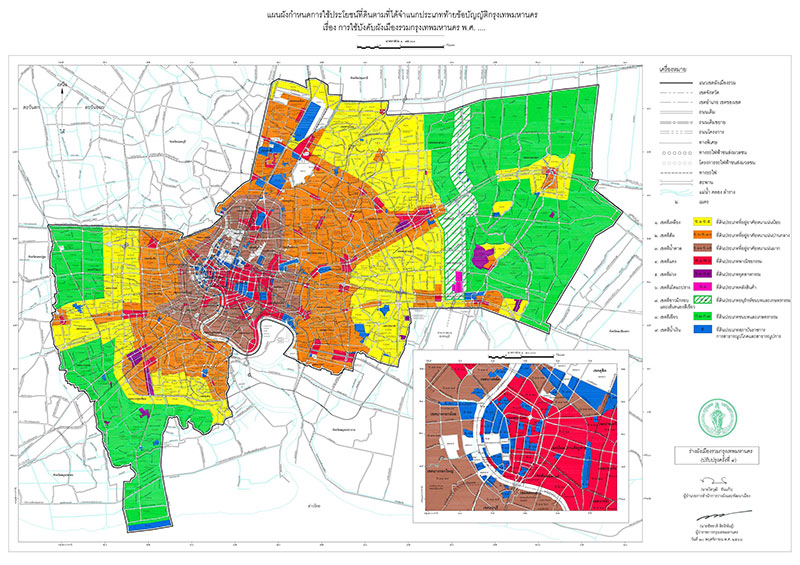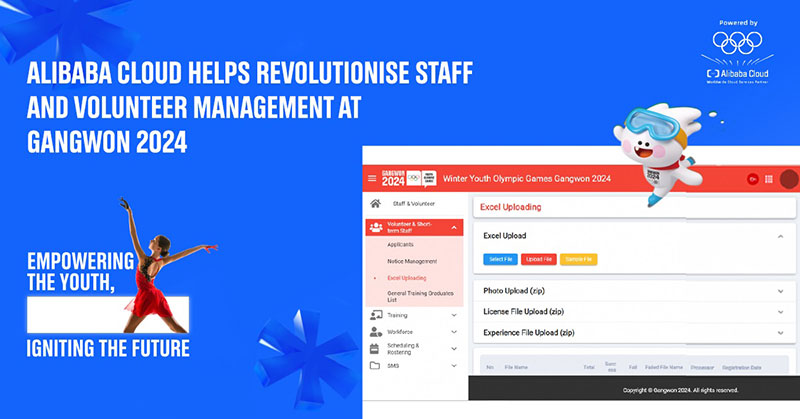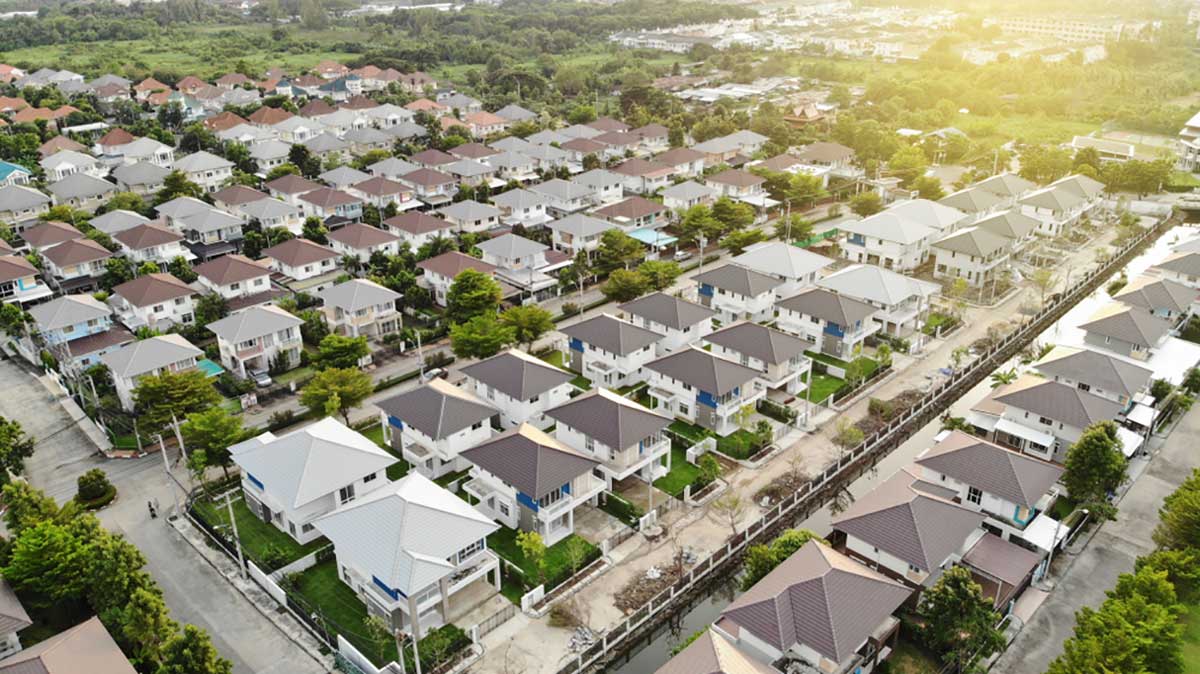คนหาบ้านต้องรู้! ผังเมืองเรื่องใกล้ตัวเมื่อคิดซื้อบ้านยุคนี้
จากการที่กรุงเทพมหานครโดยสำนั

คลายข้อสงสัย ผังเมืองแต่ละสีมีดีอย่างไร
การร่างผังเมืองรวมกรุงเทพฯ ฉบับใหม่นี้มีการพิจารณาในทุก ๆ มิติเพื่อรองรับการขยายตัวของเมือง และใช้ประโยชน์จากแนวเส้นทางรถไฟฟ้าทั้งเส้นทางที่เปิดใช้แล้วและกำลังก่อสร้าง ทำให้เมืองมีการพัฒนาออกไปยังพื้นที่ชานเมืองมากขึ้น ซึ่งจะส่งผลดีต่อทั้งผู้บริโภคและผู้ประกอบการในอนาคต ดีดีพร็อพเพอร์ตี้ (DDproperty) เว็บไซต์มาร์เก็ตเพลสด้านอสังหาริมทรัพย์อันดับ 1 ของไทย ชวนทำความรู้จักสีผังเมืองและวัตถุประสงค์ของการใช้ที่ดิน เพื่อให้ผู้บริโภคมีความรู้ความเข้าใจถึงสิทธิประโยชน์ที่ได้รับเมื่อมีการเปลี่ยนแปลงผังเมือง โดยตามกฎกระทรวงว่าด้วยเรื่องผังเมืองรวมของกรุงเทพมหานครมีการแบ่งประเภทของที่ดินไว้ตามลักษณะการใช้ประโยชน์ที่ดินและกิจกรรมบนพื้นที่ ดังนี้
- ที่ดินประเภทที่อยู่อาศัยมีวัตถุประสงค์ในการใช้ประโยชน์ที่ดินเพื่อการอยู่อาศัยเป็นหลัก โดยแบ่งผังเมืองโซนย่อยเป็น 3 เฉดสีตามปริมาณความหนาแน่นของการอยู่อาศัยในพื้นที่ และแต่ละเฉดสียังแบ่งย่อยลงไปอีกภายใต้รหัสกำกับ ซึ่งมีรายละเอียด ดังนี้
- เขตสีเหลือง ที่ดินประเภทที่อยู่อาศัยหนาแน่นน้อย ตั้งอยู่ในทำเลแถบชานเมือง มีรหัสกำกับคือ ย.1-ย.4 เพื่อส่งเสริมให้มีสภาพแวดล้อมของการอยู่อาศัยที่ดีในด้านการก่อสร้างที่อยู่อาศัย
- ที่ดินรหัส ย.1 และ ย.3 มีจุดประสงค์คล้ายกันคือส่งเสริมและดำรงไว้ซึ่งสภาพแวดล้อมของการอยู่อาศัยที่ดี แต่ที่ดิน ย.1 สามารถสร้างได้เฉพาะที่อยู่อาศัยประเภทบ้านเดี่ยว ส่วนการสร้างอาคารชุดขนาดเล็ก-ขนาดกลางทำได้ตั้งแต่ที่ดินรหัส ย.3 เป็นต้นไป
- ที่ดินรหัส ย.2 มุ่งเน้นไปที่การรองรับการขยายตัวของการอยู่อาศัยในย่านชานเมือง โดยสามารถสร้างที่อยู่อาศัยประเภททาวน์เฮ้าส์ได้บนที่ดินรหัส ย.2 เป็นต้นไป
- ที่ดินรหัส ย.4 ให้ความสำคัญกับพื้นที่ชานเมืองที่อยู่ในเขตให้บริการของระบบขนส่งมวลชน
- เขตสีส้ม ที่ดินประเภทที่อยู่อาศัยหนาแน่นปานกลาง พบได้ในบริเวณพื้นที่ต่อเนื่องกับเขตเมืองชั้นใน มีรหัสกำกับคือ ย.5-ย.7 สามารถสร้างที่อยู่อาศัยได้ทุกรูปแบบ โดยถ้าเป็นอาคารชุดที่มีเนื้อที่เกิน 10,000 ตารางเมตรจะต้องตั้งอยู่ริมถนนที่มีเขตทางไม่น้อยกว่า 30 เมตร หรืออยู่ในระยะ 500 เมตรจากรถไฟฟ้าขนส่งมวลชน
- ที่ดินรหัส ย.5 จะเน้นไปที่การรองรับการขยายตัวของการอยู่อาศัยในบริเวณพื้นที่ต่อเนื่องกับเขตเมืองชั้นใน
- ที่ดินรหัส ย.6 จะให้ความสนใจเฉพาะบริเวณที่เป็นชุมชนชานเมือง เขตอุตสาหกรรมและนิคมอุตสาหกรรม
- ที่ดินรหัส ย.7 มีจุดประสงค์ของการใช้ประโยชน์ที่ดินรองรับการอยู่อาศัยเฉพาะพื้นที่ต่อเนื่องกับเขตเมืองชั้นในบริเวณที่อยู่ในเขตการให้บริการของระบบขนส่งมวลชน
- เขตสีน้ำตาล ที่ดินประเภทที่อยู่อาศัยหนาแน่นมากหรือพื้นที่เมืองชั้นใน ภายใต้รหัสกำกับ ย.8-ย.10 สามารถสร้างที่อยู่อาศัยได้ทุกรูปแบบ เนื่องจากเป็นที่ดินซึ่งมีมูลค่าสูง จึงมักเห็นการใช้ประโยชน์ที่ดินเพื่อพัฒนาโครงการอยู่อาศัยแนวตั้งอย่างคอนโดมิเนียมย่านใจกลางเมือง
- ที่ดินรหัส ย.8 จะให้ความสำคัญกับการรักษาทัศนียภาพและสภาพแวดล้อมทางธรรมชาติ
- ที่ดินรหัส ย.9 จะเน้นที่บริเวณเมืองชั้นในและอยู่ในเขตการให้บริการของระบบขนส่งมวลชน
- ที่ดินรหัส ย.10 จะเป็นบริเวณของเมืองชั้นในซึ่งเป็นรอยต่อกับย่านพาณิชยกรรมศูนย์กลางเมือง อีกทั้งยังอยู่ในเขตให้บริการของระบบขนส่งมวลชน
- ที่ดินประเภทพาณิชยกรรมแทนที่ด้วยสีแดง มีจุดประสงค์หลักเพื่อการพาณิชย์ ภายใต้รหัส พ.1-พ.5 แบ่งตามลักษณะของทำเลที่ตั้งเป็นหลัก
- ที่ดินรหัส พ.1 และ พ.2 จะอยู่ในบริเวณชานเมือง มีจุดประสงค์ของการใช้ประโยชน์ที่ดินเพื่อเป็นศูนย์พาณิชยกรรมของชุมชน กระจายกิจกรรมการค้า ศูนย์กลางธุรกิจ การค้า การบริการ และนันทนาการ ที่อำนวยความสะดวกต่อการใช้ชีวิตประจำวันของประชาชนที่อาศัยอยู่ในพื้นที่
- ที่ดินรหัส พ.3 มีจุดประสงค์ให้เป็นการพาณิชย์ที่มุ่งกลุ่มเป้าหมายคือประชาชนทั่วไป ไม่ได้จำกัดเฉพาะผู้อาศัยในพื้นที่เท่านั้น
- ที่ดินรหัส พ.4 มีวัตถุประสงค์ของการใช้ประโยชน์ที่ดินเป็นศูนย์กลางทางธุรกิจ การค้า บริการ และนันทนาการ รวมไปถึงการท่องเที่ยว เนื่องจากตั้งอยู่ในเขตการให้บริการของระบบขนส่งมวลชนทำให้สามารถเข้าถึงได้ง่าย
- ที่ดินรหัส พ.5 ให้ความสำคัญกับการเป็นศูนย์กลางทางธุรกิจ การค้า บริการ นันทนาการ และการท่องเที่ยวในระดับภูมิภาคเอเชียตะวันออกเฉียงใต้ โดยที่ดินสีแดงนี้สามารถสร้างที่อยู่อาศัยได้และมีข้อจำกัดน้อยกว่าสีอื่น
- ที่ดินประเภทอุตสาหกรรมแทนที่ด้วยสีม่วง มีจุดประสงค์ของการใช้ประโยชน์ที่ดินเพื่อใช้ในการดำเนินกิจกรรมอุตสาหกรรม ภายใต้รหัส อ.1-อ.3 ซึ่งที่ดินประเภทนี้สามารถสร้างที่อยู่อาศัยได้ เช่น บ้านเดี่ยว หอพัก หรือคอนโดฯ ขนาดเล็ก และสร้างร้านค้าได้ แต่ไม่สามารถสร้างอาคารสูงหรืออาคารชุดขนาดใหญ่ได้
- ที่ดินรหัส อ.1 สำหรับการประกอบกิจการที่มีมลภาวะต่ำ
- ที่ดินรหัส อ.2 มุ่งเน้นที่อุตสาหกรรมการผลิต
- ที่ดิน อ.3 กำหนดให้เป็นสีเม็ดมะปราง สำหรับใช้เป็นพื้นที่คลังสินค้าสำหรับการขนส่งในระดับภูมิภาคเอเชียตะวันออกเฉียงใต้
- ที่ดินประเภทอนุรักษ์ชนบทและเกษตรกรรม (ก.1-ก.3)และที่ดินประเภทชนบทและเกษตรกรรม (ก.4-ก.5) ในผังเมืองจะแทนที่ด้วยกรอบขาวและเส้นทแยงสีเขียว รหัส ก.1-ก.3 หรือแสดงเป็นพื้นที่สีเขียว รหัส ก.4 และ ก.5 เน้นการใช้ประโยชน์ที่ดินเพื่อการสงวนรักษาทรัพยากรธรรมชาติของพื้นที่ชนบทและแหล่งเกษตรกรรม การส่งเสริมการเพาะเลี้ยงสัตว์น้ำเค็มและน้ำกร่อย รวมไปถึงการส่งเสริมเศรษฐกิจการเกษตร นอกจากนี้ยังเป็นกันชนระหว่างกรุงเทพฯ และต่างจังหวัด และมีหน้าที่รองรับน้ำให้กับกรุงเทพฯ อีกด้วย
- ที่ดินประเภทอนุรักษ์เพื่อส่งเสริมเอกลักษณ์และศิลปวัฒนธรรมไทยในผังเมืองจะแทนที่ด้วยสีน้ำตาลอ่อน รหัส ศ.1 และ ศ.2 มักจะอยู่ในเขตกรุงเทพฯ ชั้นใน กระจุกตัวอยู่ในบริเวณเกาะรัตนโกสินทร์ จุดประสงค์ของการใช้ประโยชน์ที่ดินประเภทนี้เพื่อการอนุรักษ์และส่งเสริมเอกลักษณ์ ศิลปวัฒนธรรมของชาติ รวมไปถึงกิจกรรมการพาณิชย์และการท่องเที่ยว
- ที่ดินประเภทสถาบันราชการ การสาธารณูปโภคและสาธารณูปการแทนที่ด้วยสีน้ำเงิน รหัส ส. ที่ดินประเภทนี้เป็นที่ดินของรัฐ ซึ่งใช้เพื่อเป็นสถาบันราชการหรือการดำเนินกิจการของรัฐที่เกี่ยวข้องกับระบบสาธารณูปโภคและสาธารณูปการ หรือเพื่อสาธารณะประโยชน์ เช่น ที่ดินของสถาบันการศึกษา วัด ศาสนสถาน เป็นต้น ที่ดินสีน้ำเงินจึงกระจายอยู่ทั่วทุกเขตของกรุงเทพฯ และที่ดินบางแห่งซึ่งรัฐไม่ได้ใช้งานก็มีการนำมาสัมปทานให้เอกชนทำสัญญาเช่าเพื่อดำเนินกิจการต่าง ๆ ทำให้เห็นว่ามีห้างสรรพสินค้า สำนักงาน หรือคอนโดฯ บางแห่งตั้งอยู่บนที่ดินสีน้ำเงินได้ด้วยเช่นกัน
ร่างผังเมืองใหม่สำคัญอย่างไรเมื่อต้องซื้อบ้าน
หากมองผิวเผินหลายคนอาจคิดว่าผังเมืองเป็นเรื่องไกลตัวและไม่ได้ให้ความสนใจมากนัก แต่แท้จริงแล้วการจัดทำผังเมืองเป็นเรื่องใกล้ตัวกว่าที่คิด นอกจากจะเป็นการวางรากฐานไปสู่การพัฒนาเมืองและกระจายความเจริญแล้ว ยังมีผลกระทบโดยตรงต่อผู้บริโภคที่วางแผนซื้ออสังหาริมทรัพย์ รวมทั้งผู้ที่วางแผนปลูกสร้างที่อยู่อาศัยในที่ดินของตนเองอีกด้วย ดีดีพร็อพเพอร์ตี้ (DDproperty) เผยความสำคัญของการจัดทำผังเมืองรวมกรุงเทพมหานครที่มีต่อการเลือกซื้อที่อยู่อาศัย เพื่อเป็นแนวทางให้ผู้บริโภคสามารถวางแผนเลือกซื้อบ้าน/คอนโดฯ ในทำเลที่ตอบโจทย์การอยู่อาศัยในระยะยาว
- หลีกเลี่ยงการอยู่ใกล้โรงงาน คลายความกังวลใจ แม้ว่าที่ดินประเภทอุตสาหกรรม (ผังเมืองสีม่วง) จะสามารถสร้างที่พักอาศัยได้โดยต้องพิจารณาควบคู่กับพระราชบัญญัติโรงงาน ซึ่งจะกำหนดให้ห้ามตั้งโรงงานในบริเวณบ้านจัดสรรเพื่อการพักอาศัย อาคารชุดพักอาศัย และบ้านแถวเพื่อการพักอาศัย พร้อมทั้งกำหนดระยะห่างของโรงงานจากเขตติดต่อสาธารณสถานไว้ อย่างไรก็ดีจะเห็นได้ว่าในปัจจุบันยังมีโรงงานตั้งปะปนในเขตชุมชมในหลายทำเล เนื่องจากบางโรงงานตั้งอยู่มาก่อนมีการจัดทำผังเมือง หรือจากการเปลี่ยนแปลงผังเมืองใหม่ทำให้เกิดการขยายเมืองออกมาใกล้โรงงาน ส่งผลให้โรงงานเหล่านั้นยังคงใช้ประโยชน์ที่ดินต่อไปได้ แต่ถ้าขัดต่อนโยบายของผังเมืองรวมในสาระสำคัญจากผังเมืองใหม่ คณะกรรมการผังเมืองสามารถสั่งให้โรงงานแก้ไขปรับปรุงในเวลาที่กำหนด หรือระงับการใช้งานได้ หรือให้โยกย้ายไปพื้นที่อื่นและจ่ายค่าชดเชยให้
ดังนั้น ผู้บริโภคควรศึกษาว่าทำเลที่ต้องการซื้อบ้าน/คอนโดฯ นั้นอยู่ในที่ดินประเภทอุตสาหกรรม หรือเคยเป็นที่ดินประเภทอุตสาหกรรมมาก่อนจะโดนปรับผังเมืองให้เป็นประเภทที่อยู่อาศัยและพาณิชยกรรมหรือไม่ ซึ่งอาจจะมีโรงงานเดิมตั้งอยู่ก่อนที่จะมีโครงการบ้านจัดสรร/คอนโดฯ ไปสร้างทีหลัง โดยควรหลีกเลี่ยงการเลือกที่อยู่อาศัยในทำเลเหล่านี้เพื่อลดความเสี่ยงของผลกระทบจากการรั่วไหลของสารเคมีหรืออุบัติเหตุต่าง ๆ ที่อาจเกิดขึ้นได้ในอนาคต ถือเป็นวิธีป้องกันที่ดีที่สุดและสร้างความสบายทั้งกายและใจในระยะยาว
- ป้องกันการซื้อบ้านในพื้นที่เสี่ยงถูกเวนคืน การวางแผนพัฒนาประเทศของภาครัฐส่วนใหญ่เน้นไปที่เส้นทางคมนาคม ไม่ว่าจะเป็นถนนตัดใหม่ ทางหลวงพิเศษ หรือรถไฟฟ้า จึงทำให้เกิดการประกาศกำหนดเขตที่ดินที่จะเวนคืนออกมาหลายฉบับเพื่อเตรียมดำเนินก่อสร้างโครงการสาธารณูปโภคต่าง ๆ ซึ่งการประกาศเขตแนวเวนคืนที่ดินเพื่อเป็นแนวทางเท่านั้น ไม่ได้หมายความว่าแนวเขตบนพื้นที่นั้นทั้งหมดจะถูกเวนคืนไปด้วย โดยประชาชนสามารถนำเลขที่โฉนดที่ดินไปตรวจสอบกับ 2 หน่วยงานที่มีส่วนเกี่ยวข้อง ได้แก่ การรถไฟฟ้าขนส่งมวลชนแห่งประเทศไทย และการทางพิเศษแห่งประเทศไทย เพื่อยืนยันความชัดเจนอีกครั้งได้
ปฏิเสธไม่ได้ว่าประเด็นนี้สร้างความกังวลใจให้เจ้าของที่ดินและผู้อยู่อาศัยไม่น้อย เนื่องจากในอดีตการเวนคืนที่ดินจะมีการจ่ายค่าทดแทนตามราคาประเมินทุนทรัพย์ของทางราชการหรือกรมธนารักษ์ ซึ่งมักจะมีราคาประเมินต่ำกว่าราคาขายจริงในท้องตลาด และหากโดนเวนคืนเพียงบางส่วนของที่ดินก็อาจส่งผลให้ที่ดินส่วนที่เหลือนั้นราคาตกได้ ผู้บริโภคจึงควรตรวจสอบรายละเอียดของผังเมืองให้ถี่ถ้วนว่าโครงการที่อยู่อาศัยที่สนใจนั้นอยู่ในแนวเขตเวนคืนหรือไม่ อย่างไรก็ดี ล่าสุดทางกรุงเทพมหานครได้ออกมาชี้แจงว่าในร่างผังเมืองใหม่ไม่มีโครงการเวนคืนพื้นที่จากสิ่งปลูกสร้างเดิมเพื่อสร้างถนนเพิ่ม แต่เป็นการเว้นระยะห่างจากแนวถนนเดิมตามระยะกำหนดซึ่งมีการประกาศใช้มาแล้วตั้งแต่ผังเมืองปี 2556 เพื่อให้สิ่งปลูกสร้างใหม่มีระยะร่นและเว้นระยะห่างตามกำหนด ลดความแออัดของถนนในซอยต่าง ๆ
- ผังน้ำโชว์ฟลัดเวย์-พื้นที่เสี่ยงปัญหาน้ำท่วมขัง ร่างผังเมืองฉบับใหม่ได้จัดทำแผนผังแสดงผังน้ำ โดยมีวัตถุประสงค์เพื่อพัฒนาโครงข่ายระบบการระบายน้ำ ป้องกันและแก้ไขปัญหาน้ำท่วมและภัยแล้งของกรุงเทพมหานคร ซึ่งถือเป็นประโยชน์กับผู้บริโภคที่วางแผนซื้อที่อยู่อาศัยในการหลีกเลี่ยงปัญหาน้ำท่วมขังในฤดูฝน โดยสามารถตรวจสอบจากร่างผังเมืองได้ว่าโครงการที่อยู่อาศัยอยู่ในพื้นที่ทางระบายน้ำหรือคลองระบายน้ำที่อาจได้รับผลกระทบเมื่อเกิดน้ำท่วมขังหรือไม่ หรือทำเลใดที่เคยประสบปัญหาน้ำท่วมขังมาแล้วในอดีต
โดยผังน้ำจะบอกรายละเอียดของสถานีสูบน้ำ, ประตูระบายน้ำ, โครงการปรับปรุงคลองระบายน้ำ, โครงการขยายคลองระบายน้ำ, โครงการขุดคลองระบายน้ำ, โครงการอุโมงค์ระบายน้ำ, แนวคันป้องกันน้ำท่วมและพนังกั้นน้ำริมแม่น้ำและลำคลอง, อุโมงค์ระบายน้ำ, โครงการสงวนรักษาพื้นที่ทางน้ำหลาก (ฟลัดเวย์), โครงการสงวนรักษาพื้นที่พักน้ำ (แก้มลิง) และคาบน้ำท่วมกรณีปัจจุบันซึ่งแสดงพื้นที่เสี่ยงอุทกภัยที่คาบน้ำอุบัติในรอบ 10 ปี, 25 ปี และ 100 ปี นอกจากนี้ กรุงเทพมหานครยังมีแผนขยายขนาดคลองเพิ่มอีก 4-5 คลอง จากเดิมขนาด 14-15 เมตร เป็น 30-40 เมตร เพื่อช่วยเพิ่มประสิทธิภาพในการรองรับน้ำให้ได้มากขึ้นในอนาคต และแก้ปัญหาน้ำท่วมขังได้อย่างครอบคลุมมากขึ้น
- มหานครระบบรางส่งเสริมการพัฒนา TOD การพัฒนาพื้นที่รอบสถานีรถไฟฟ้าและสถานีขนส่งมวลชน หรือ TOD (Transit Oriented Development) ในรัศมี 800 เมตร เป็นแนวคิดระดับโลกในการพัฒนาเมืองควบคู่ไปกับการพัฒนาโครงสร้างพื้นฐานด้านคมนาคมขนส่ง โดยเน้นการพัฒนาพื้นที่รอบสถานีขนส่งสาธารณะที่เป็นศูนย์กลางเชื่อมต่อการเดินทาง กำหนดรูปแบบการใช้ที่ดินให้เกิดประโยชน์สูงสุด เพื่อสร้างชุมชนรอบสถานีให้เป็นชุมชนคุณภาพ ส่งเสริมการเดินทางด้วยระบบขนส่งสาธารณะ เน้นการเดินทางในพื้นที่โดยไม่ใช้เครื่องยนต์ รวมทั้งสร้างเมืองที่เป็นมิตรต่อการเดินและการใช้จักรยาน นอกจากจะช่วยบรรเทาปัญหามลพิษแล้ว ยังจะพัฒนาคุณภาพชีวิตของประชากรให้ดีขึ้นอีกด้วย
แม้ตอนนี้ไทยยังไม่มีการพัฒนาเมืองแบบ TOD ที่ชัดเจนเหมือนต่างประเทศ แต่มีสัญญาณที่ดีจากการวางและจัดทำผังเมืองรวมกรุงเทพมหานคร (ปรับปรุงครั้งที่ 4) ที่ได้ปรับใช้ประโยชน์ที่ดินเพิ่มขึ้นในหลายทำเลตามการพัฒนาโครงการรถไฟฟ้าในเส้นทางใหม่ ๆ เพื่อรองรับการขยายตัวทางเศรษฐกิจในทำเลดังกล่าว โดยทางสำนักการวางผังและพัฒนาเมืองได้มีการศึกษาและวางแผนพัฒนาพื้นที่ที่มีศักยภาพรอบบริเวณสถานีขนส่งมวลชนเพิ่มเติมจากการศึกษาในร่างผังเมืองใหม่ เพื่อให้สอดคล้องและรองรับกับแผนการพัฒนาระบบรางของภาครัฐที่กำลังจะเกิดขึ้นใหม่ ทั้งนี้ การพัฒนาเมืองภายใต้แนวคิด TOD นั้นต้องอาศัยความร่วมมือจากหลายภาคส่วนทั้งภาครัฐ ภาคเอกชน และประชาชน รวมทั้งการแก้ไขกฎหมายที่จะช่วยผลักดันให้แนวคิดนี้เกิดขึ้นจริงได้ ซึ่งคาดว่าในอนาคตจะมีความชัดเจนมากขึ้น
- ผังเมืองสีแดงตอบโจทย์คนหาบ้านใกล้ความเจริญ ผู้บริโภคที่ต้องการซื้อที่อยู่อาศัยเพื่อพักผ่อนในย่านที่เงียบสงบและไม่ชอบความวุ่นวายอาจไม่เหมาะกับการเลือกซื้อที่อยู่อาศัยในที่ดินประเภทพาณิชยกรรม (ผังเมืองสีแดง) เนื่องจากโซนนี้รองรับการพัฒนาศูนย์กลางทางธุรกิจ การค้า บริการ นันทนาการ และการท่องเที่ยว จึงทำให้ในอนาคตมีโอกาสที่โครงการที่อยู่อาศัยในย่านนี้จะแวดล้อมไปด้วยห้างสรรพสินค้า ร้านอาหาร และผับบาร์ที่มีความพลุกพล่าน ซึ่งจะตอบโจทย์ผู้บริโภคที่ต้องการอาศัยในทำเลที่มีสิ่งอำนวยความสะดวกครบครันแทน
ขณะเดียวกัน หากเป็นเจ้าของที่ดินหรือที่อยู่อาศัยในพื้นที่ที่เปลี่ยนแปลงสีผังเมืองเป็นสีแดงก็ถือว่าได้ประโยชน์หากมีการพัฒนาเพื่อส่งเสริมให้เป็นศูนย์กลางธุรกิจในอนาคต อย่างไรก็ตาม ใช่ว่าที่ดินทุกผืนในโซนสีแดงจะได้ประโยชน์หรือมีโอกาสในการถูกกว้านซื้อจากนายทุนเสมอไป เนื่องจากยังมีพระราชบัญญัติควบคุมอาคารที่กำหนดแนวร่นอาคารที่วัดจากกึ่งกลางถนนสาธารณะเพื่อใช้ควบคุมการก่อสร้างคอนโดฯ ไว้ จึงมีเพียงที่ดินบางผืนที่ติดถนนใหญ่เท่านั้นที่จะได้รับประโยชน์ทางธุรกิจมากขึ้น
นอกจากนี้ ร่างผังเมืองใหม่ได้ปรับเพิ่ม FAR Bonus (Floor Area Ration Bonus) หรือมาตรการเพื่อสร้างแรงจูงใจให้ภาคเอกชนร่วมพัฒนาเมืองโดยจัดทำโครงการให้เป็นประโยชน์ต่อสาธารณะตามเงื่อนไขที่กรุงเทพมหานครกำหนด แลกกับการได้สิทธิประโยชน์ในการก่อสร้างพื้นที่อาคารเพิ่มเติมตามที่กฎหมายกำหนด จากเดิม FAR Bonus มีเพียง 5 เงื่อนไข เพิ่มเป็น 10 เงื่อนไข เพื่อกระตุ้นให้ผู้ประกอบการ ผู้พัฒนาโครงการอสังหาริมทรัพย์ หรือเจ้าของที่ดินมีส่วนร่วมในการพัฒนาเมืองที่มีคุณภาพมากขึ้น โดยจะสามารถสร้างอาคารได้สูงขึ้นหากแบ่งที่ดินให้กับสาธารณะ เช่น เป็นที่ตั้งบันไดสะพานลอย, ที่ตั้งหม้อแปลงไฟฟ้า, จุดจอดวินมอเตอร์ไซค์ หรือขยายพื้นที่ทางเท้า เพื่อช่วยแก้ปัญหาทางเท้าแคบ เป็นต้น โดยเอกชนยังคงถือกรรมสิทธิ์ที่ดินนั้นได้ และประชาชนทั่วไปจะได้รับประโยชน์ตามไปด้วย
อย่างไรก็ดี การประชุมเพื่อรับฟังความคิดเห็นและปรึกษาหารือกับประชาชนเกี่ยวกับการจัดทำร่างผังเมืองใหม่ในช่วงที่ผ่านมาได้ก่อให้เกิดกระแสวิพากษ์วิจารณ์อย่างมาก ทั้งในมุมของประชาชนที่ได้รับผลกระทบจากการที่ที่ดินอยู่ในเขตแนวเวนคืนหรือถูกรอนสิทธิในการพัฒนาต่าง ๆ ขณะที่การปรับสีผังเมืองของที่ดินประเภทพาณิชยกรรม (สีแดง) ยังคงกระจุกตัวอยู่โซนใจกลางเมือง ไม่เกิดการกระจายความเจริญไปยังพื้นที่รอบนอก ทำให้เกิดการตั้งคำถามว่าเป็นการเอื้อประโยชน์ให้นายทุนหรือไม่ หากภาคเอกชนได้กว้านซื้อที่ดินไว้แล้วมายื่นขอปรับเปลี่ยนสีผังเมืองเพื่อให้ตนเองได้ประโยชน์มากขึ้น ซึ่งหากมีการก่อสร้างตึกสูงย่อมจะเกิดการเปลี่ยนแปลงต่อระบบนิเวศและกระทบชุมชนข้างเคียงอย่างหลีกเลี่ยงไม่ได้
รวมทั้งยังต้องติดตามความคืบหน้าในกรณีที่นายชัชชาติ สิทธิพันธุ์ ผู้ว่าราชการกรุงเทพมหานคร จะหารือกับรัฐบาลเพื่อผลักดันการปรับเพิ่มอัตราการเก็บภาษีที่ดินและสิ่งปลูกสร้างประเภทที่ดินเกษตรกรรมแยกย่อยตามโซนผังเมืองรวมในโซนสีแดง, โซนสีน้ำตาล, โซนสีม่วง และโซนสีเม็ดมะปราง เพื่อแก้ปัญหาการทำเกษตรกรรมในผังเมืองเหล่านี้ซึ่งเป็นการหลีกเลี่ยงการจ่ายภาษีที่ดินในอัตราที่สูงขึ้น แม้กระทรวงการคลังจะเคยปฏิเสธแนวคิดนี้มาแล้วก็ตาม
การจัดทำร่างผังเมืองใหม่ครั้งนี้ถือเป็นวาระสำคัญที่จะช่วยพัฒนาเมืองหลวงของไทยให้เติบโตได้อย่างเต็มศักยภาพและเติบโตได้อย่างยั่งยืนในทุกมิติ ซึ่งต้องอาศัยความร่วมมือจากทุกภาคส่วนในการออกความคิดเห็นเพื่อสร้างเมืองไปพร้อม ๆ กัน โดยเฉพาะผู้บริโภคที่ควรศึกษาทำความเข้าใจและมีส่วนร่วมเพื่อรักษาสิทธิในที่อยู่อาศัยของตนเองและครอบครัว ทั้งนี้ เว็บไซต์มาร์เก็ตเพลสด้านอสังหาริมทรัพย์อันดับ 1 ของไทยอย่างดีดีพร็อพเพอร์ตี้ (www.ddproperty.com) ได้รวบรวมข่าวสารและบทความเกี่ยวกับแวดวงอสังหาฯ ไว้ใน “คู่มืออสังหาฯ” คลังความรู้ครบวงจรที่นำเสนอเนื้อหาที่เป็นประโยชน์สำหรับผู้บริโภคที่กำลังวางแผนซื้อ/ขาย/เช่าที่อยู่อาศัยและลงทุน เพื่อช่วยให้ทุกคนก้าวสู่เส้นทางอสังหาฯ ได้อย่างมั่นใจ และเตรียมความพร้อมก่อนตัดสินใจเลือกที่อยู่อาศัยที่ตอบโจทย์ได้มากที่สุด






